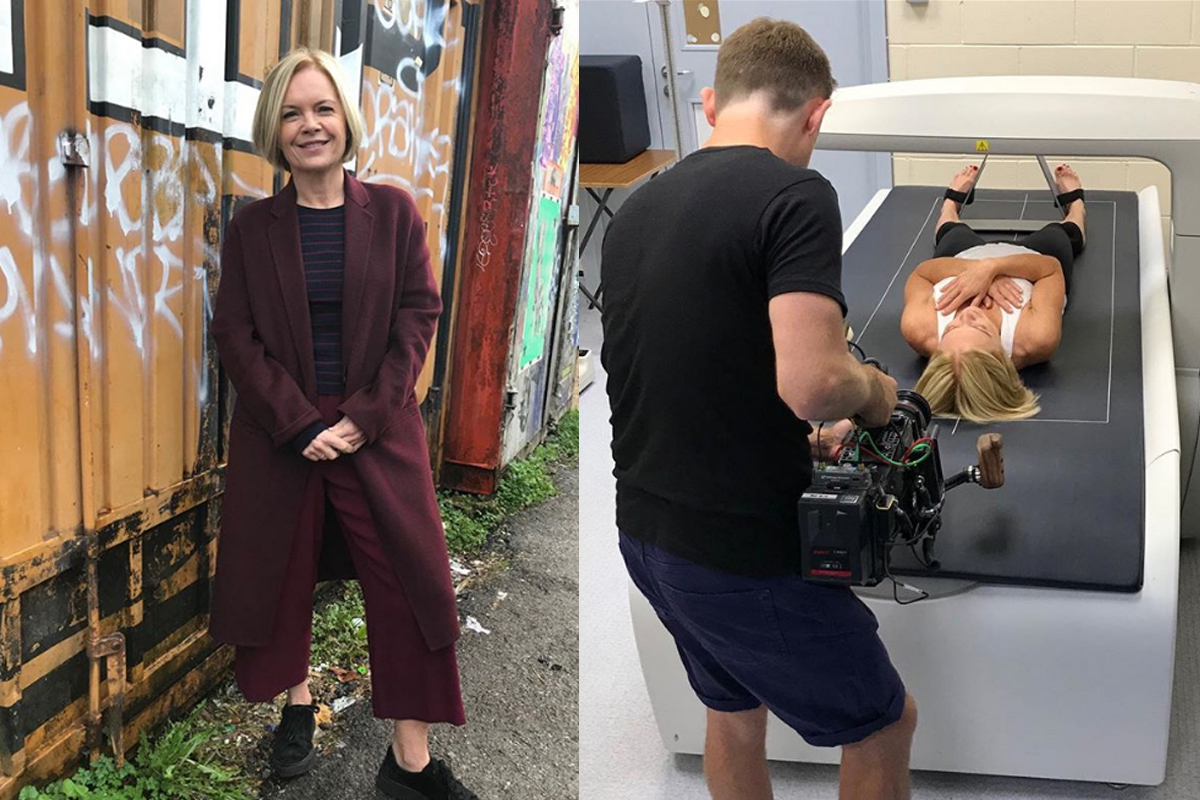As the Mariella’s Frostrup BBC documentary points out, the menopause currently affects 13 million women in the UK, and yet it’s shrouded in secrecy and wildly misunderstood. So, it was refreshing to watch her documentary on Monday where she shared her own personal experience of the menopause. Mariella admitted to suffering from anxiety and sleeplessness which she didn’t understand and wasn’t aware was a symptom of the menopause. She visited a series of doctors, and now has annual blood tests to test her hormone levels. In her documentary, she delves into the latest science behind the all the taboos surrounding the menopause. With so much scaremongering around the dangers of taking hormone replacement therapy, she helped the audience gain an understanding of the causes of hot flushes, the minimal risks of HRT and new drugs to treat the menopause.
Negative Perceptions Of The Menopause
It was unsurprising to discover that whatever your age or your gender, the menopause is still suffering from negative perceptions. Mariella, 56, asked a random set of people on the street what word they thought of when they heard the word ‘menopause’. Their responses captured the debilitating and extreme impact ‘the change’ can have on women’s lives:
- Miserable
- Moody
- Grumpy
- Old age
- Ageing
- Pain
- Suffering
One woman was having up to 30 hot flushes a day, impacting her work and ruining her life. Mariella went on to uncover a range of solutions to help reduce the personal impact. It’s time we all understood it better. Women felt they are not prepared. One woman even mentioned wanting to pin her husband against the wall! Another says it has a stigma as it makes them feel old.
New Menopause Drug Trials
Charing Cross Hospital, in association with Imperial College, has developed a cutting-edge drug that can reduce the chemical in the brain causing the hot flushes. The new menopause drug could dramatically cut hot flushes and be a new alternative to hormone replacement therapy (HRT). The drug works by targeting receptors in the brain, blocking a chemical called neurokinin B (NKB). In trials, it resulted in a 70% reduction in the hot flushes, including on the women with extreme flushes.
The Case For HRT
After suffering from Menopause symptoms five years ago, Mariella followed expert advice and decided to take HRT. She has been taking oestrogen every morning and progesterone every night to help her sleep. This has left her feeling positive saying that she felt “really good in myself, really strong”
HRT has a lot of bad press due to possible links to cancer. It was reassuring to hear that other factors like alcohol consumption and obesity have a bigger impact on your cancer risk that HRT. HRT leads to 4 extra cases of breast cancer which is less than the impact of drinking 2 glasses of wine a day or being overweight. Obesity increases risks by 6 times.
Cognitive Behavioural Therapy and HRT
Although initially sceptical that psychological factors can affect how you feel, Mariella followed the experiences of a group of women that tried out cognitive behavioural therapy. They were taught to identify negative reactions, embarrassment, panic attack signals. Bu using paced breathing and changing thought processes, they were able to reduce hot flushes. They tested it out in daily lives and all of them felt a renewed sense of confidence and control. One woman even described CBT as ‘transformational’. CBT can change peoples attitude towards the menopause and in turn how they feel.
Turning Japanese
Many natural remedies have mixed reviews, especially Black Cohort and St John’s Wort. However, one natural remedy that has shown to have a positive impact is eating a more Japanese diet including oily fish and soy. Japanese women have fewer symptoms during the menopause and this is thought to be partly due to their diet. Eating oily fish and soy products like tofu, tempeh and miso which contain lots of plants with oestrogen effects have been shown to reduce symptoms by 20%. By making changes to your diet you could eat yourself to a healthier menopause!
Bone Density During Menopause
Mariella looked into the reduction in bone density in the menopause. Mariella herself had problems with her bone density, but in her 5 years taking HRT it has improved. One thing that has a big effect on your bones in menopause is exercise. She looked into a study that looked at women during the menopause who ran, cycled, or did no exercise. Those who did not exercise had the lowest bone density, with cyclist having an 8% improvements in bone density, and runners seeing a 13% improvement. The impact on the skeleton that exercise provides impact your bones which helps them get stronger. If you’re not much of an exerciser, dancing gives your bones a great amount of impact!
The Male Menopause
Mariella talked to doctors about the possibility of male menopause, admitting that she doubted it even existed. But it’s true, there are doctors that do actually treat men for the menopause. Apparently 10 – 16% of men have a testosterone deficiency, with some of the symptoms being the same. They have put on weight, find themselves sleepy, have aching muscles and a drop in energy levels. Patients have been using testosterone gel that they have credited with changing their lives. Other doctors do doubt that testosterone deficiency really affects that many men, with one doctor telling Mariella that its only 2%.
Reversing The Menopause
Mariella visited some scientists who are actually working on reversing the Menopause. Helping young women entering early menopause after cancer treatment, they have been working to take out the ovaries before treatment and reimplanting afterwards. The ovaries do kick back into life when they are re-implanted, with 95% of women gaining hormonal function after this implant.
Mariella’s documentary covered so many different aspects on the Menopause, and it was a fascinating look into all the different treatments and remedies. What was important to take from the documentary is that with some effort and talking to different doctors, you can really make a difference. It was a positive look at how to feel better. But as Mariella reminds us, the best thing we can do is keep talking about it – loudly and unashamedly! The more open we are, the more we can tackle the stigma and see a real change in attitudes! So, cut down on the white wine, open a packet of HRT and a run around the block with a positive attitude seems to be the answer. We can rule the world at 55!





